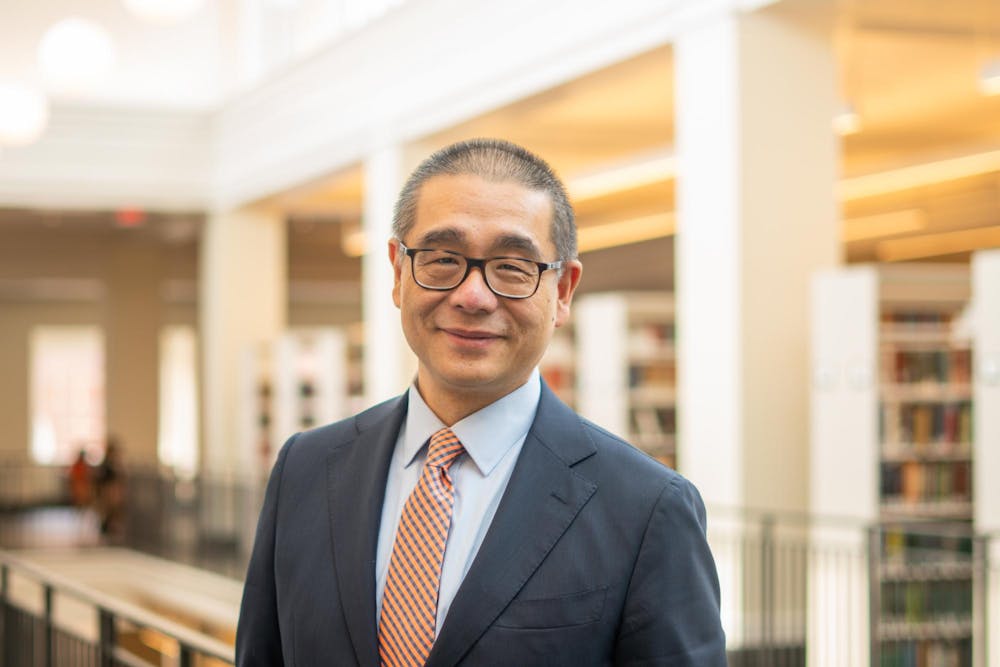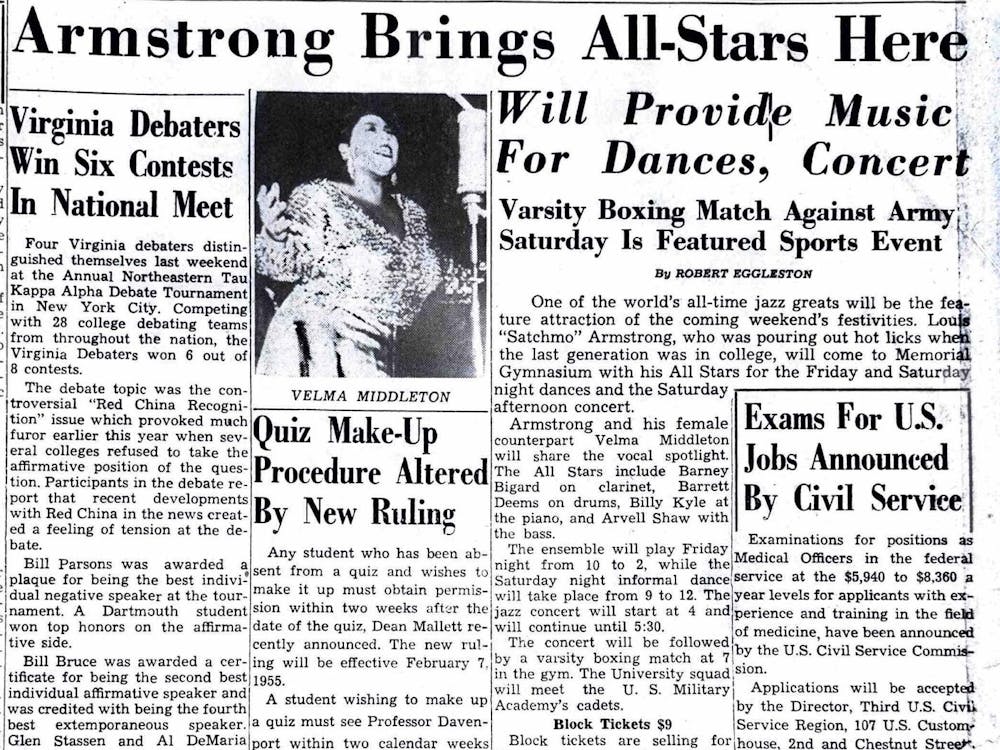Leo Lo began his tenure Sept. 15 as University Dean of Libraries, and, as announced at the Board of Visitors Academic and Student Life Committee, Advisor to the Provost for Artificial Intelligence Literacy. As he enters his position as Dean of Libraries, Lo said his central priority is preparing the University’s libraries for the rapid changes AI will bring, likening the technology to the internet’s arrival decades ago.
“When the internet first came out, it changed the library world completely,” Lo said. “I can see AI doing similar things to us … We have to be ready to help you, to help the faculty as well.”
The Dean of Libraries oversees all undergraduate and professional libraries across Grounds, directing a team of more than 220 staff and 190 student employees. The role also includes advising the University on library technology initiatives and managing the institution’s library resources.
Lo previously served as Dean of Libraries at the University of New Mexico and has worked at Penn State University, the University of Alabama and Kansas State University. During his 2024-2025 term as President of the Association of College and Research Libraries, he initiated the creation of a task force focused on developing AI competencies for library professionals. The role he will take on as Advisor to the Provost for AI Literacy is a new one at the University and one he will bring his expertise in AI to as he begins his position.
Lo’s appointment comes as the University prepares for the growing influence of artificial intelligence in education. Since 2022, the University has introduced initiatives such as the Generative AI in Teaching and Learning Task Force and Faculty AI Guides to support this transition.
A major part of this preparation, Lo said, is ensuring that students and faculty can conduct ethical and responsible research. He emphasized that libraries must teach users how to verify information and take ownership of their work, particularly in a time where AI is becoming more prevalent.
Lo also acknowledged the challenges AI poses for traditional education. Tools like ChatGPT, he said, can undermine student motivation by making assignments too easy. He stressed the importance of helping students preserve the drive to strengthen their critical thinking skills, even as AI becomes more accessible.
To meet these challenges, Lo has developed an AI literacy framework that emphasizes five areas — literacy, ethics, critical thinking, technical proficiency and awareness of societal impact — that he will bring to his role advising on AI. He said libraries should be at the center of this effort by supporting faculty and students in becoming more skilled at using AI and developing research skills.
“AI now will probably become the new information discovery tool, just like Google was,” Lo said. “So how can we make sure that our students still have applied critical thinking skills to find the correct information, to verify whatever the AI output is?”
Lo also spoke about the need for guidance around AI use in education. While he said he does not favor restrictive policies, he believes the University should provide clear values for students and faculty to follow.
At the September Board meeting, Interim Provost Brie Gertler highlighted Lo’s enthusiasm for advancing a better understanding of AI.
“Leo has a special interest in AI, and he will serve in an informal role as my special advisor on AI literacy,” Gertler said. “... Mr. Lo is committed to preparing universities for the future of AI.”
His appointment comes as Gertler launches a standing committee on AI at the University, called AI@UVA. Gertler said the group will coordinate efforts across schools and departments, with possible priorities including AI literacy and academic integrity.
“Work on those topics is already underway in some schools and departments,” Gertler said. “The intention of a pan-University working group is to facilitate information sharing and provide additional resources.”
Beyond AI, Lo said he hopes students will come to see the University’s libraries as more than transactional spaces. He encouraged students to build ongoing relationships with library staff who can guide them through the academic challenges they face.
“We want you to think of us as part of your journey, and not just come here to borrow a book or use a desk to study,” Lo said. “It’s funny how much people can learn when you have someone actively walking you through it.”







